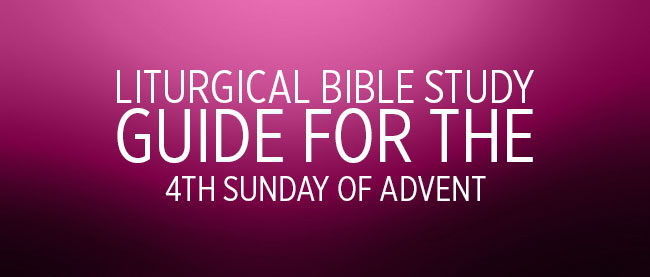Introduction
Anticipation and preparedness are the watchwords for Advent. Anticipation of the celebration of the birth of our Lord some 2000 years ago and the festivities, gifts, parties and family get-togethers which accompany that celebration. Preparedness because we are reminded that Jesus will come at the end of the world (the parousia) and all will be judged – not just on whether they believed or not, but how they have lived out their belief. Are the end times near? No one knows but the Father. We must always be ready because our personal parousia can come at any time.
1st Reading – Isaiah 7:10-14
The attack of Syria and Israel on Judah was an attempt to force Judah into an anti-Assyrian coalition. Ahaz, king of Judah, resolved his difficulty, against the urging of Isaiah, by submitting as vassal to Assyria, whose king moved against Syria and Israel. The time is around 721 B.C. Judah is about to succumb politically and spiritually to the Assyrians and Isaiah has been warning Ahaz against this; while Ahaz’s advisors have been urging him to give in. The Lord has been speaking to Ahaz through Isaiah and has said: “7:7b This shall not stand, it shall not be! 8 Damascus is the capital of Aram, and Rezin the head of Damascus; Samaria is the capital of Ephraim, and Remaliah’s son the head of Samaria. 9 But within sixty years and five, Ephraim shall be crushed, no longer a nation. Unless your faith is firm you shall not be firm!”
2nd Reading – Romans 1:1-7
Paul wrote the Letter to the Romans to a congregation which he did not establish – he hadn’t even visited it yet. Paul was conscious that his apostolate in the Mediterranean area was over. Having preached “all the way from Jerusalem to Illyricum” (Romans 15:19), he looked westward to Spain. He planned to visit the Roman church en route, to fulfill a longstanding desire. Before heading west, he had to attend to one last matter: to carry personally to Jerusalem the collection taken up in Gentile churches that he had founded (Romans 15:25; 1 Corinthians 16:1) in order to manifest to the Jewish Christian mother church the solidarity existing between the “poor” of that community and the Gentile Christians of Galatia, Macedonia and Achaia. These Gentile Christians contributed to that collection, realizing that they had “shared in the spiritual blessings” of the mother church (Romans 15:27). So before he departed from Corinth for Jerusalem, Paul wrote to the Roman church to announce his coming visit. In Saint Paul’s letters the greeting follows a standard form, though he does use some variations. The three basic components are: name of sender, name of addressee; greeting. In identifying himself, Paul often adds phrases to describe his apostolic mission and our reading today contains one of the most eloquent of these descriptions.
Gospel – Matthew 1:18-24
Having heard of the Annunciation as the gospel reading for the Feast of the Immaculate Conception, we now hear about Joseph and his reaction to the news.


